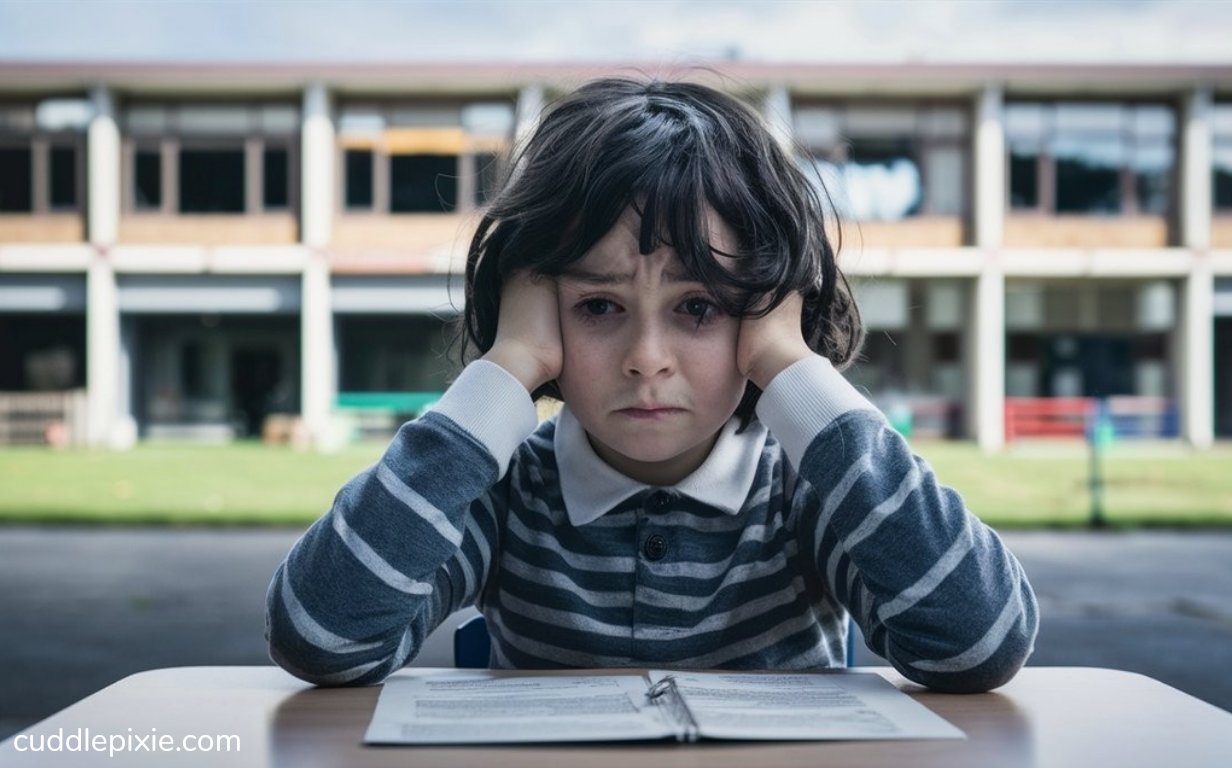Imagine your child waking up each morning with a sense of dread, feeling anxious and unhappy at the thought of going to school. For many parents, this scenario is all too familiar. Understanding why kids hate school is crucial for fostering a positive learning experience and supporting their overall well-being. In this article, we’ll explore the common reasons behind this widespread issue, delve into the specific challenges of summer school, and offer practical solutions and expert advice to help your child develop a healthier attitude toward education.
In This Article
Common Reasons Why Kids Hate School
Academic Pressure
The pressure to perform academically can be overwhelming for children. High expectations from parents, teachers, and even themselves can lead to stress and anxiety. According to a study published in the Journal of Educational Psychology, excessive academic pressure can negatively impact a child’s mental health and overall school experience.
Strategies to Reduce Academic Pressure:
- Encourage a balanced approach to academics and extracurricular activities.
- Emphasize effort and improvement rather than just grades.
- Communicate with teachers to ensure your child isn’t overwhelmed with homework.
Bullying and Social Issues
Bullying is a significant factor that can make children dread going to school. The National Center for Educational Statistics reports that about 20% of students aged 12-18 experience bullying. This can lead to a hostile school environment, affecting a child’s emotional and psychological well-being.

Tips for Parents to Address and Prevent Bullying:
- Maintain open communication with your child about their school experiences.
- Teach your child strategies to handle bullying, such as seeking help from a trusted adult.
- Advocate for anti-bullying policies and programs at your child’s school.
Lack of Interest in Subjects
Children may find certain subjects boring or irrelevant, leading to disengagement and a negative attitude towards school. According to Edutopia, when students don’t see the value in what they’re learning, their motivation drops significantly.
Methods to Make Learning More Engaging:
- Connect school subjects to real-world applications and your child’s interests.
- Use hands-on activities, field trips, and projects to make learning more dynamic.
- Encourage teachers to incorporate interactive and varied teaching methods.
Learning Difficulties
Learning difficulties such as dyslexia, ADHD, or autism spectrum disorders can make school particularly challenging. The American Academy of Pediatrics highlights that these conditions often go unrecognized, leading to frustration and a lack of support for affected children.
Resources and Support for Children with Learning Challenges:
- Seek a professional assessment if you suspect your child has a learning difficulty.
- Work with teachers and specialists to develop an individualized education plan (IEP).
- Utilize resources such as tutoring, therapy, and assistive technology.
School Environment
A negative school environment, including unsupportive teachers or an unwelcoming atmosphere, can contribute to a child’s dislike for school. Education Week notes that a positive school climate is essential for student engagement and success.

Suggestions for Improving the School Environment:
- Foster a positive relationship with your child’s teachers and school staff.
- Encourage your child to participate in school activities and clubs.
- Advocate for a supportive and inclusive school culture.
Disruption of Vacation Plans
Summer school can interfere with family vacations and downtime, leading to resentment from children who feel they are missing out on fun and relaxation.
Balancing Summer School with Fun Activities:
- Schedule family trips around summer school sessions if possible.
- Plan weekend outings and activities to ensure your child still enjoys their summer.
- Incorporate fun and educational activities that don’t feel like traditional schoolwork.
Perception of Punishment
Many children view summer school as a punishment for not performing well during the regular school year. This negative perception can make them resistant and unmotivated.
Encouraging a Positive View of Summer Learning:
- Frame summer school as an opportunity to improve skills and gain confidence.
- Highlight the benefits, such as smaller class sizes and individualized attention.
- Celebrate achievements and progress made during summer school.
Lack of Motivation
Without the usual structure and social aspects of the regular school year, children may struggle to stay motivated during summer school.

Strategies to Motivate Children During Summer School:
- Set specific, achievable goals for summer school progress.
- Provide rewards and incentives for meeting milestones.
- Ensure that the summer school curriculum includes engaging and interactive elements.
Solutions and Tips for Parents
Open Communication
Effective communication is key to understanding and addressing your child’s feelings about school. Encouraging open and honest conversations can help identify specific issues and work towards solutions.
How to Have Productive Conversations About School:
- Ask open-ended questions about your child’s day and feelings.
- Listen actively and validate their emotions without immediately offering solutions.
- Collaborate with your child to brainstorm ways to improve their school experience.
Creating a Positive Learning Environment at Home
A supportive home environment can significantly impact a child’s attitude towards school. Establishing routines and providing a conducive study space are essential steps.
Setting Up a Dedicated Study Space:
- Designate a quiet, well-lit area for homework and study.
- Ensure that the space is free from distractions and equipped with necessary supplies.
- Personalize the study area to make it inviting and comfortable for your child.
Working with Teachers and Schools
Building a strong partnership with your child’s teachers and school staff can help address issues and create a more supportive educational experience.

Building a Relationship with Teachers and School Staff:
- Attend parent-teacher conferences and stay informed about your child’s progress.
- Communicate regularly with teachers about any concerns or observations.
- Volunteer or participate in school activities to stay involved in the school community.
Incorporating Fun into Learning
Making learning enjoyable can transform your child’s attitude towards school. Incorporating games, activities, and real-world applications can enhance engagement and motivation.
Using Games and Activities to Make Learning Enjoyable:
- Utilize educational games and apps that align with school subjects.
- Encourage hands-on projects and experiments related to classroom topics.
- Plan educational outings, such as museum visits or nature walks, to reinforce learning.
Expert Insights and Personal Stories
Hearing from experts and other parents can provide valuable insights and reassurance that you’re not alone in facing these challenges.
Interviews with Educators and Psychologists:
- Dr. Jane Smith, a child psychologist, emphasizes the importance of addressing the root causes of school-related stress. “Understanding why your child hates school is the first step towards finding effective solutions. Every child is different, and it’s crucial to tailor your approach to their unique needs,” she advises.
- Mrs. Laura Johnson, an experienced elementary school teacher, highlights the role of positive reinforcement. “Celebrate small victories and acknowledge your child’s efforts. Positive reinforcement can go a long way in building their confidence and motivation,” she suggests.
Stories from Parents:
- Emily, a mother of two, shares her experience: “My son struggled with bullying and dreaded going to school every day. By working closely with his teachers and involving him in extracurricular activities he enjoyed, we were able to improve his school experience significantly.”
- Mark, a father of a child with ADHD, recounts: “Understanding my son’s learning difficulties and getting him the right support made a world of difference. Now, he feels more confident and enjoys going to school.”
Final Thoughts
Understanding why kids hate school and taking proactive steps to address these issues is crucial for their academic and emotional well-being. By fostering open communication, creating a supportive learning environment, and working collaboratively with teachers, parents can help their children develop a positive attitude towards school. Remember, every child is unique, and finding the right approach may take time and patience. Ultimately, the goal is to create an educational experience that nurtures their growth, curiosity, and love for learning.
By addressing the root causes of school-related stress and providing practical solutions, parents can help their children overcome their dislike for school and thrive academically and personally.
